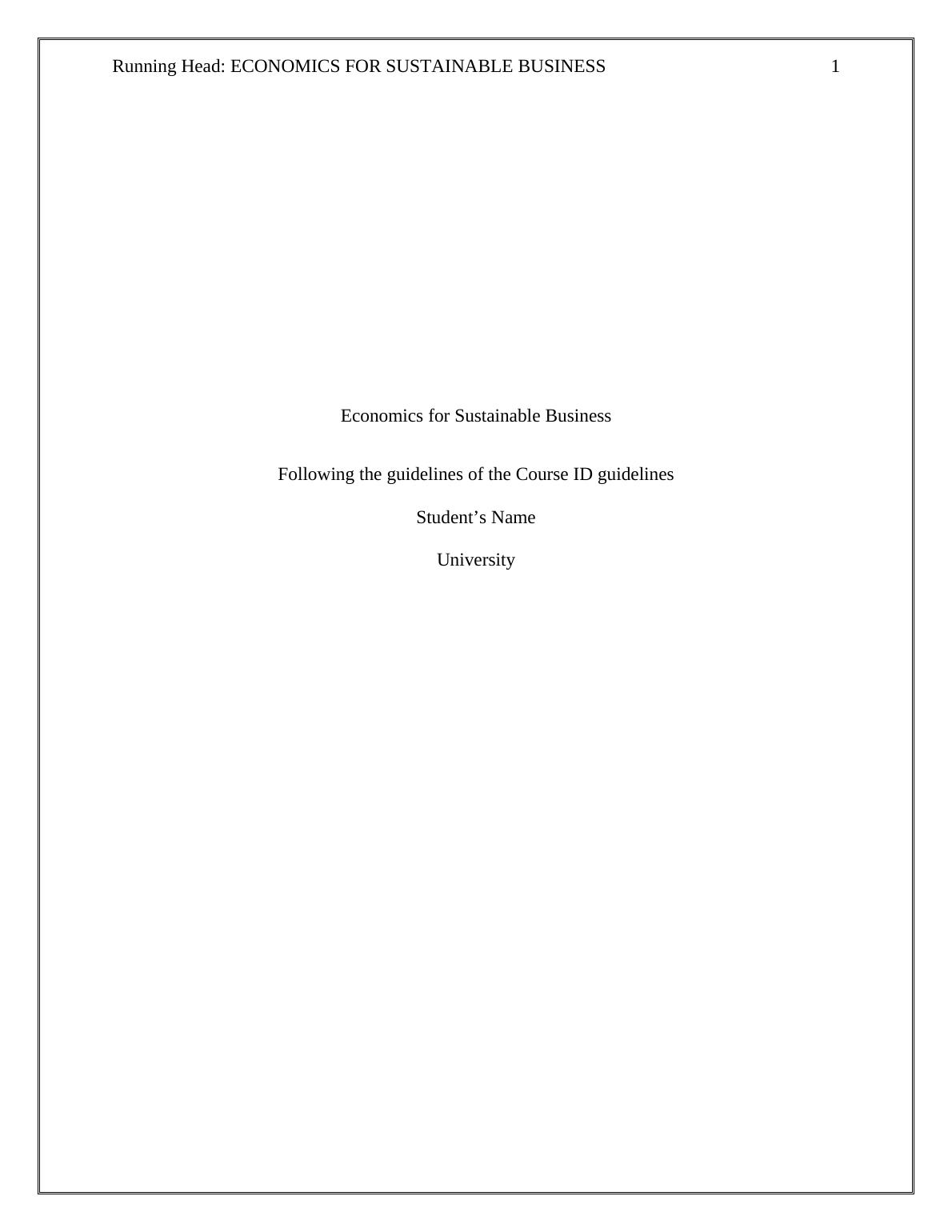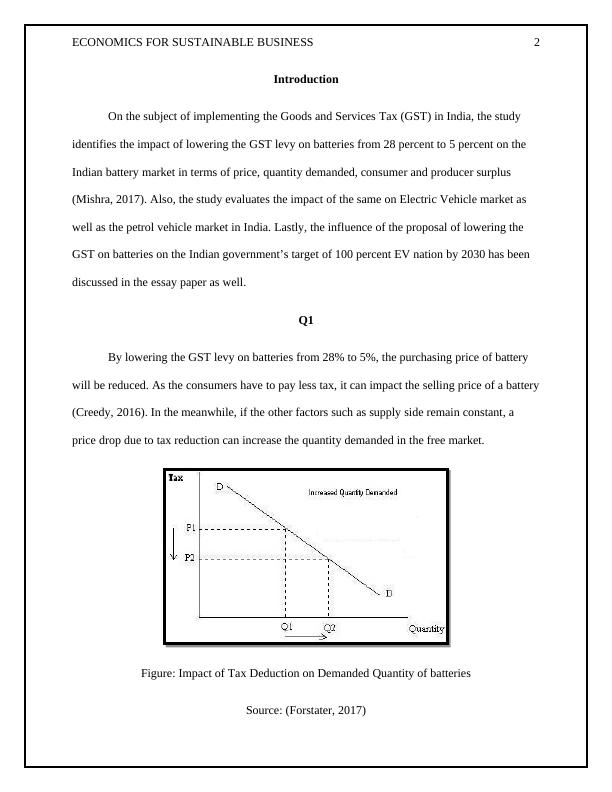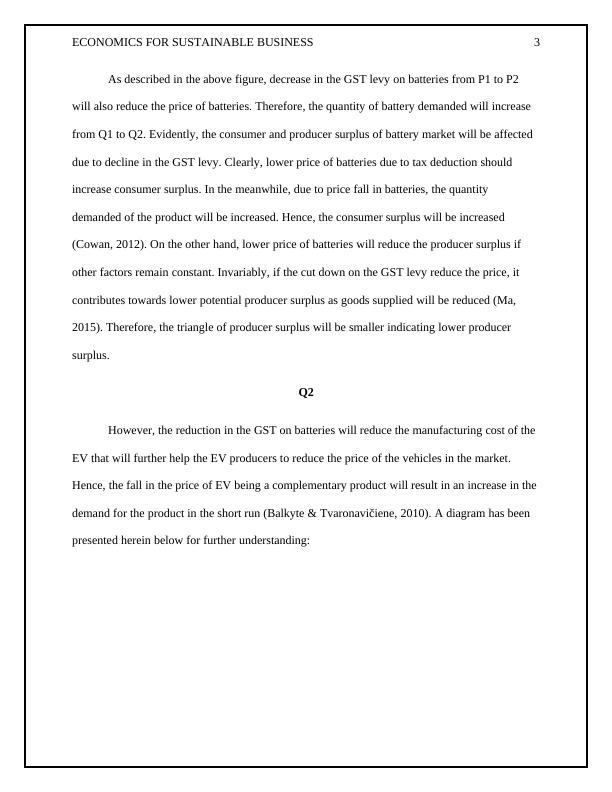MGT 448 - Economics for Sustainable Business
8 Pages1550 Words17 Views
University of Phoenix
Global Business Strategy (MGT 448)
Added on 2020-03-01
About This Document
MGT 448 - The study evaluates the impact of the same on the Electric Vehicle market as well as the petrol vehicle market in India. Lastly, the influence of the proposal of lowering the GST on batteries on the Indian government’s target of a 100 percent EV nation by 2030 has been discussed in the essay paper as well.
MGT 448 - Economics for Sustainable Business
University of Phoenix
Global Business Strategy (MGT 448)
Added on 2020-03-01
ShareRelated Documents
End of preview
Want to access all the pages? Upload your documents or become a member.
ECONOMICS GST Hike in Battery
|6
|1320
|266
Economics For Sustainable Business Report GST In Indian Economy
|8
|1506
|236
Production cost in India | Report
|7
|1279
|130
GST Levy on Batteries 7 Running Head: GST Levy on Batteries 7 Running Head: GST Levy on Batteries 7 Running Head: GST Levy on Batteries 7 Running Head: GST Levy on Batteries 7 Running Head: GST Levy o
|7
|1277
|171
BU1003 - GST on Solar Panel Batteries
|9
|1478
|67
Health Economics
|10
|777
|391



